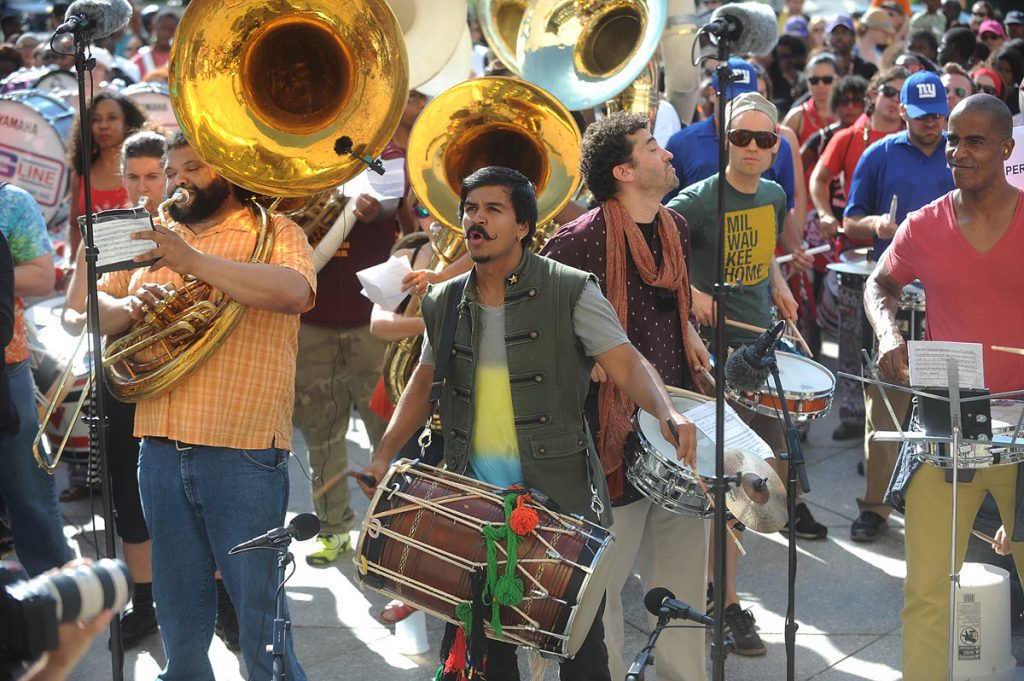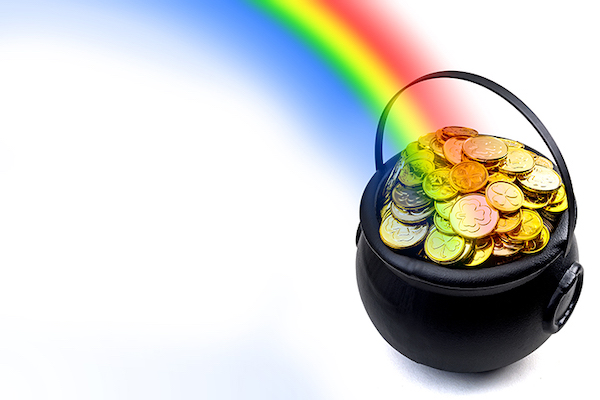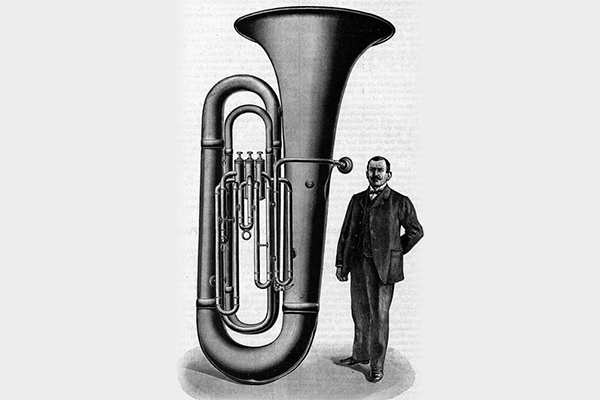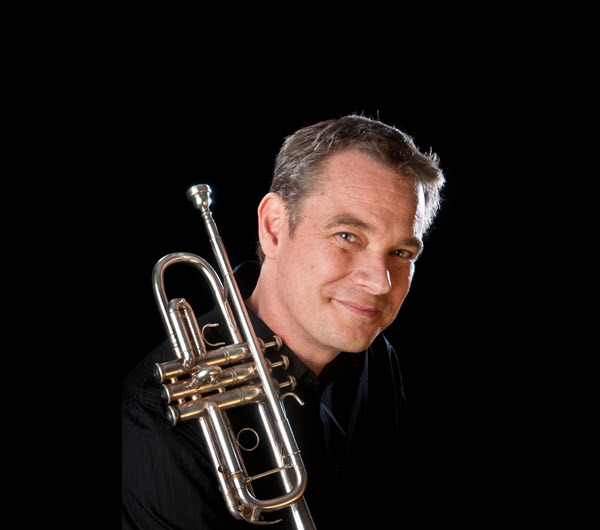New Year, New Decade, New Music
A look back at the past ten years in music … and a look ahead to the next ten.

Last November, Billie Eilish incited a twitter-storm when she appeared on Jimmy Kimmel Live! and revealed during an impromptu pop-culture quiz that she didn’t know who Van Halen was. The quiz was part of a goofy stunt premised on the fact that Eilish, despite her massive success, had not yet turned eighteen (she would on December 18th, a birthday that, happily, she shares with Keith Richards). Kimmel was seventeen in 1984, so the questions turned on how familiar Eilish was with whatever was big that year (Van Halen, Madonna, Huey Lewis, etc.). The short answer was, not very.
Fine, so far. Everyone over 35 has experienced that stunning moment when a young person has no idea who one of the idols of your youth is. Kimmel, who is fifty-two, was having some fun with this idea, and though she regretted feeling “so stupid,” Eilish was, too. The Internet, not so much. Ridiculously, Eilish was excoriated for being unfamiliar with a band that had its last hit years before she was born. Of course, she also had defenders, but even they didn’t seem to get the point. Judd Apatow, for example, posted, “As someone who has worked with many young people, they are inundated with new music, movies and TV. They don’t have the time to catch up on stuff from earlier decades. Ask a kid if they know what “Mash” is, or “The Odd Couple.” Ask them who Lou Reed is. They’re drowning in content.”
That statement seems to me to be entirely misguided, yet, as this tumultuous decade crashes to a close, it does get at something real about our rapidly fragmenting culture. That fragmentation — and the technology that makes it possible — is the true story of the music of the 2010’s, more so than the work of any particular artist. All you need do is walk through the streets of any city and find yourself dodging people lost in their smartphones, pricey headphones and every other manifestation of personal technology that allows people to disappear into their own private streaming world.
I don’t see anything wrong with that, although, as a native New Yorker, I will confess to missing the elegant choreography of people moving briskly through the streets, intent on their own destinations but efficiently aware of everyone around them. Moreover, I believe that the incredible access to music that our increasingly digital world provides means that we share more music across generations than we ever have before.
One of the key memes of the past year was, “OK, boomer,” the offhand, millennial/Gen Z dismissal of their elders’ patronizing lectures. And just as decades don’t divide as literally as they do on a calendar, “OK, boomer” is directed as much at Generation X — Jimmy Kimmel’s cohort — as baby boomers. Predictably, as soon as they learned they were being flipped off, older people began posting and writing about those selfish, unappreciative, uninformed youngsters — all but proving the point of the “OK, boomer” phenomenon in the first place. But I’ve found that, as long as you’re not condescending about your own tastes, young people are not only willing to be curious about them, but willing to share their own tastes with you.
As Apatow correctly pointed out, young people — and all of us, really — are “drowning in content.” It was recently announced that Netflix® alone had released more new shows in 2019 than all of broadcast and cable television combined had in 2005, and the company is scheduled to release even more next year. But many of those shows will include soundtracks that consist of both old and new songs. My fourteen-year-old daughter didn’t know or care much about Lou Reed when I published a biography of him a couple of years ago, but it definitely meant something to her when Finn Wolfhard, a sixteen-year-old actor on her favorite show, “Stranger Things,” mentioned him as an idol in an interview.
How did Toto’s “Africa,” a song from 1983, become one of the most fun memes of the past few years? Who knows? But one thing digital culture has done is flatten chronology. Young people encounter music from every period in all kinds of contexts without any indication of its provenance. Back in 2011, I remember teaching my writing students at the University of Pennsylvania about synesthesia, or sensory confusion (tasting smells or seeing sounds, for instance). As an example, I quoted Syd Barrett’s lyrics from Pink Floyd’s “Astronomy Domine”: “Lime and limpid green / the sound surrounds / the icy waters underground.” I mentioned that I wished I could play the song for them, but my classroom wasn’t outfitted with all the mod cons. One of my students, a seventeen-year-old freshman, raised his hand. He had Pink Floyd’s first album, The Piper at the Gates of Dawn, downloaded on his phone and was happy to play the song for us.
Pink Floyd remains a rite of passage for young music fans, and there are many others. But as our listening habits become more personalized, those rites of passage and new discoveries will likely become more individual and idiosyncratic. While Billie Eilish knew nothing of Van Halen, she was familiar with Madonna and Cyndi Lauper, which makes a lot more sense. When I took my daughter to see Katy Perry at Madison Square Garden in 2017, the opening act, Noah Cyrus, brought out her sister Miley and her father Billy Ray to play Billy Ray’s 1992 hit, “Achy Breaky Heart.” It was a lovely gesture: Her dad had never gotten to play the Garden when he was a huge star, so his daughters teamed up to give him the chance. He was thrilled. Now, of course, his appearance in the remix of Lil Nas X’s massive “Old Town Road” has made him a star all over again.
I was struck by one of the comments posted on Rolling Stone’s list of the “Best Songs of the 2010’s”: “It’s amazing how many of these songs I barely remember or never heard. I think the streaming age has made it impossible to have a cohesive, shared generational musical experience.” So true. When I speak to my students or to my daughter and her friends, it’s clear that, while they’re all listening to music, with few exceptions they’re all listening to different things. But their tastes shift quickly and so, given the amount of music they hear and have access to, I’m optimistic that the amount of sharing and eventual overlap will grow in the years ahead.
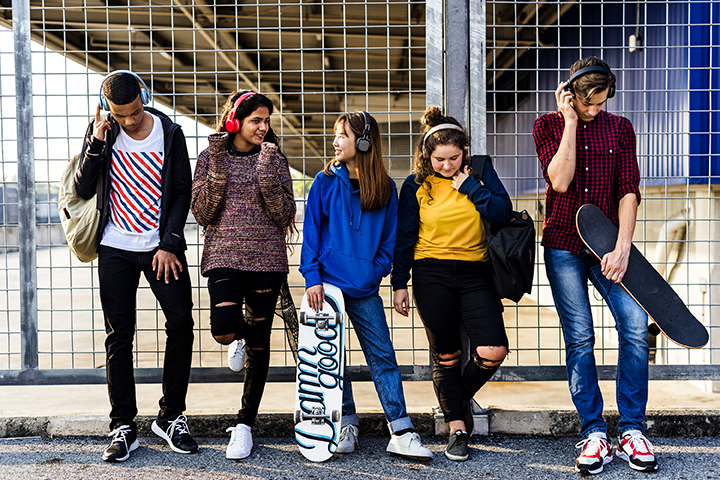
One development that will help drive the breaking down of boundaries is the continued erosion of genre distinctions. Performances like Beyoncé being backed by an HBCU marching band at Coachella, Justin Timberlake working with Chris Stapleton, and Carrie Underwood teaming up with Ludacris push everyone out of their comfort zone, including fans. In addition, when performed live on stage, such collaborations create the sort of highly desirable social media moments that drive viewership. Musicians, as a rule, are avid listeners, and, like their fans, they are now exposed to a greater array than ever before. That, along with the desire to make a bold move that can attract attention in a crowded marketplace, leads to a willingness to try something new, and I have no doubt we’ll be seeing more such experimentation. I don’t think anyone would ever have predicted that indie icon Bon Iver would become a favorite of the likes of Kanye West, Rick Ross, Travis Scott and Vince Staples!
One other thought: “Globalism” may be a controversial term in the political realm, but in music it’s simply a fact of life. “Despacito,” on which singer Luis Fonsi and rapper Daddy Yankee were joined by Justin Beiber (another collaboration), was perhaps the most popular song of the past decade. Psy’s gigantic dance hit, “Gangnam Style,” and the boy band BTS brought Korean pop music to the international stage in a major way. The borders of the digital world are far more porous than geographical ones, so we can look forward to many more developments along those lines.
Look, I totally get the “OK, boomer” thing. I laughed out loud when I first heard about it, and recalled my own eye-rolling dismissals of old people trying to tell me what “good music” was. Back then, it also depended on who was talking to me. When the Rolling Stones and Eric Clapton discussed the blues artists they revered, I spent a lot of time hunting for music made in the twenties, thirties and forties — tunes that young people now can find online in ten seconds. In 1965, Pete Townshend insisted that “I hope I die before I get old.” Cool. I felt that way, too. But The Who made a terrific album just last year, and I’m glad they’re still doing it and that I’m still around to hear it.
However divided our society may be now in so many ways, as far as music is concerned, I honestly believe that the kids are all right, and the old folks are, too. This past decade may have sent us all off in different directions, but I’m confident that we’ll find each other again — perhaps just in passing, but over and over again. Open minds — and open ears — would help. Hopefully, some of those old people so incensed by Billie Eilish’s ignorance of Van Halen will take the time to listen to her extraordinary music … and maybe she and some of her fans will check out Van Halen in turn. She shares a birthday with Keith Richards, after all — and “Running With the Devil” is a bop!











